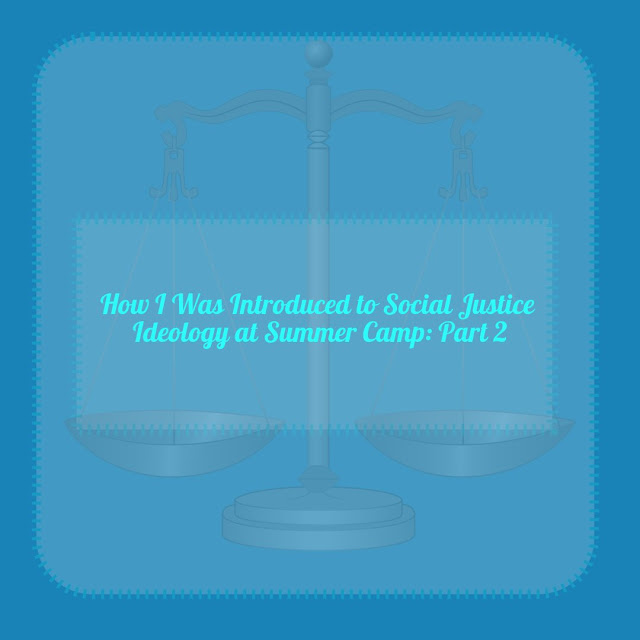Gender Box
We sat in a room with big poster paper in the front. The counselor told us to yell out typical characteristics/traits of men. "Strong!" "Men don't Cry!" "Macho!" were among the many phrases shared. The counselor then put a box around the group of phrases, and asked us to yell out characteristics/traits men are expected not to have. Phrases ranged from "gay" to "wear pink." The counselors then explained that within our society gender is a "social construct"; that boys and men are expected to act masculine and are therefore placed in a "box", like the one we saw on the poster board. We were taught how damaging this social construct is, and that gender is more of a spectrum than a set of rigid expectations. We repeated the activity for women. These "boxes" were explained as negative, that these beliefs led to homophobic thoughts, which could lead to homophobic words, and actions (violence).
There were many other activities like this which caused me to rethink EVERYTHING. I began to question things that I thought were true. I was raised in a Christian home, in a conservative family. So how could I reconcile what I was being taught at camp with what I believed?
Essentially, I had to separate the two. I held on to the tenants of Christianity that could easily be adopted by Social Justice Ideology; beliefs like “treat others as you would want to be treated,” “do not judge”, “be the change you want to see in the world (oh wait, that’s not from the Bible...but you get the point). I labeled myself a Christian but in practice I wasn't. A Christian’s mission should be to share the good news of the Gospel. My mission was to share the “truths” of America’s racism, sexism, and homophobia. I also loved to tell other people about their privilege on Tumblr threads and Facebook posts. The greatest sin was no longer my sin against Christ, it was the sins of those who are privileged against those who are oppressed.
It's impossible to adopt social justice ideology without twisting biblical truth. I've already addressed the sin of partiality that social justice ideology is rooted in (check out part 1 of this series).
Racism
There is a pervasive view in social justice ideology that only white people can be racist. Because they define racism as "prejudice + power" and state that black people (or people of color) cannot hold power, this means that people of color do not have the ability to be racist. This is false. While many agree with this "nuanced" definition of racism, it is a newer definition (created in the 1970s). Racism simply means to believe that one race is superior/inferior to another race. This is a heart issue. Believing that your race is better than other races is a sin issue (pride). Any one, of any race/ethnicity, can be racist. All racists will be held liable to God for their thoughts, words, and actions.
Heavy on the Works
Social Justice Ideology functions as a works-based religion. Those who are part of the privileged class are perpetually repenting of their privilege. Acknowledging that privilege isn't enough. You must always find ways to give up your privilege to those who are unprivileged, whether that be your money, your time, your voice, or your space (figuratively and literally). And the goal post of forgiveness is always shifting. Read any anti-racist book (like White Fragility) and see how the work of repenting of your privilege is never ending. But according to God, all of our works, our righteous deeds, are like filthy rags (Isaiah 64:6)! There is nothing we can do (giving money to others, putting people of color on our platforms, repenting of your whiteness) to earn God's forgiveness. When Christ died on the cross, he atoned for our sins. The work is finished in HIM! There is nothing we can do to earn salvation.
Social justice ideology pins sin on particular groups of people. The Bible states that "all have sinned and fall short of the glory of God” (Romans 2:23). Social Justice Ideology focuses on the horizontal direction of sin (person-to-person, systems-to-people) while ignoring the vertical direction of sin (all people-to-God). This means that social justice ideology has its own god, which fashions its own list of morals and truths. Those morals and truths do not match up with what God has written in Scripture. In my next post I plan to discuss how social justice ideology calls good evil, and evil good and what implications that has for the Christian.
Do you agree that social justice ideology twists scripture? Are there other ways you've seen this ideology twist scripture? Or do you think Christianity and Social Justice Ideology can work together?
Look out for Part 3 coming soon!


